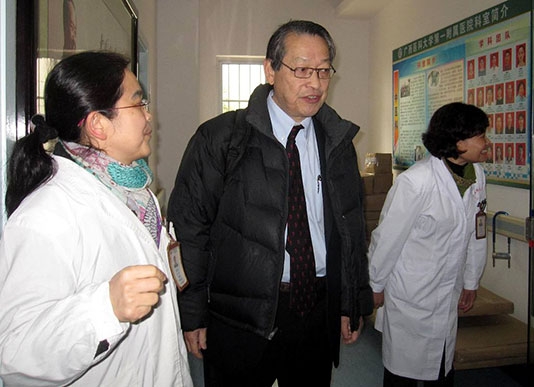Delivering Health Services in Guangxi, Southern China

Signs of China’s economic expansion can be found even in its more rural and less affluent provinces of the country, such as Guangxi Zhuang Autonomous Region in southern China. Researchers at Guangxi Medical College have found, through their recent health surveys in two counties, that investment in health care services is increasing and accessibility to health care is also improving. However, both the quantity and quality of health workers will need to be dramatically increased in order to meet the people’s demand for health care services.
One problem, for example, that lacks sufficient services in Guangxi is mental health. Guangxi Medical College consequently is examining new ways of delivering services to people suffering from a range of mental health difficulties including schizophrenia, mood disorder, and alcoholism. With an insufficient number of psychiatric hospitals to meet needs, Guangxi Medical College faculty are experimenting with community and home-based care for these three illnesses in two trial counties of Liujiang and Liucheng. The project’s primary research focus is on human resources: can primary care clinicians who customarily receive 3-5 years of medical training effectively provide mental health services and what are policies to sufficiently incentivize and train these primary providers.
Guangxi Medical College is one of ten provincial medical colleges in CMB’s Western China Rural Health Network, which promotes sharing of experiences and disseminating of innovations in improving rural health. CMB has provided grant support for the two described research projects, Innovative Management of Rural Healthcare in Guangxi Zhuang Autonomous Region (09-947) and Policy Study on Human Resources in Rural Mental Health Care in Guangxi (10-033).
